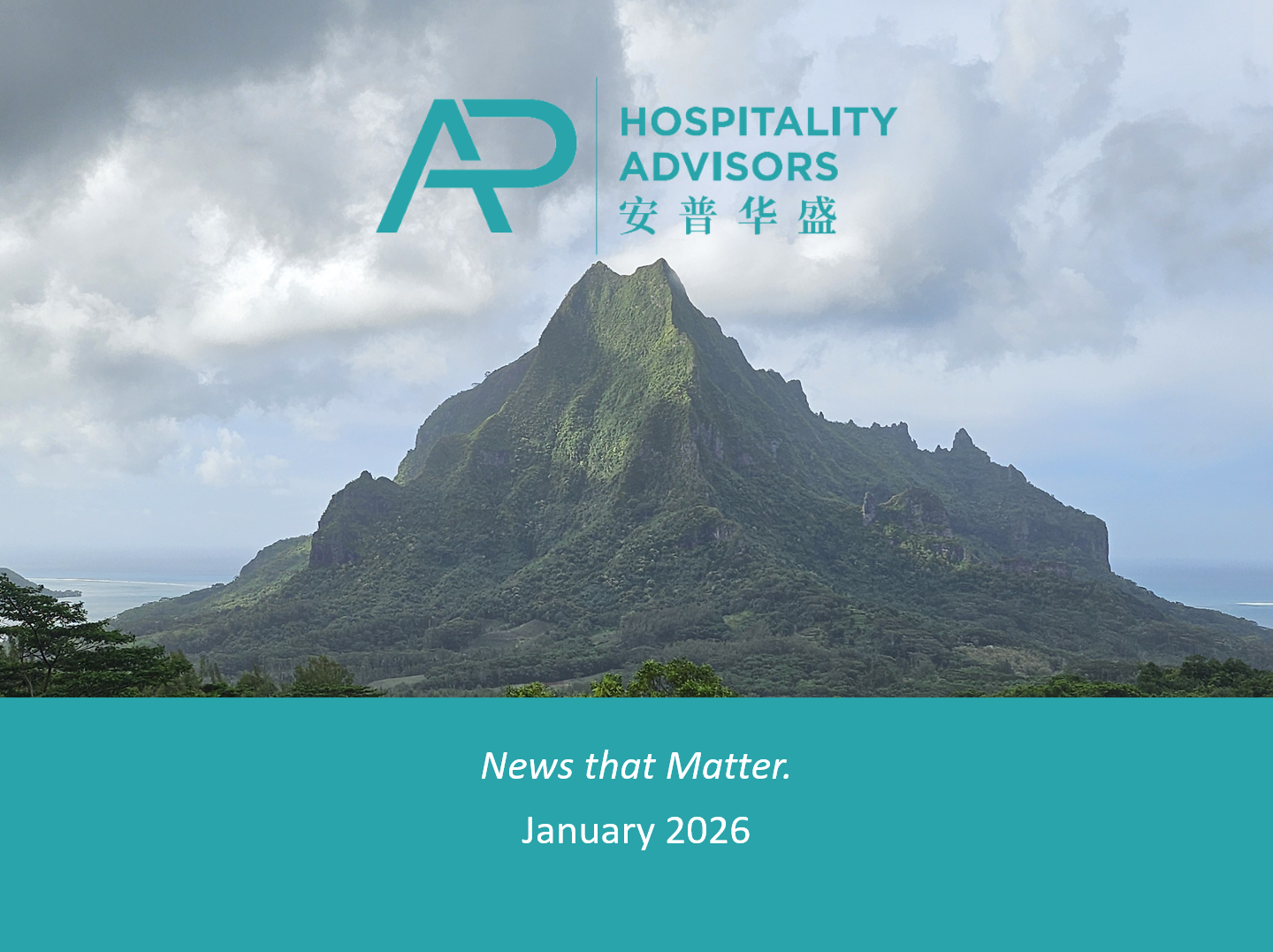AP COVID Hospitality Bulletin Asia Pacific - May 2021
by

Transactions that matter.
1. Four Points by Sheraton Central Park, Australia
- The 279-key Four Points by Sheraton Sydney, Central Park is part of the Central Park mixed-use development which was developed by Frasers and Sekisui House in 2018.
- The hotel was sold to an offshore buyer for US$114 (AUD$150) who was looking to gain exposure to Australia market.
2. Hotel Kyoto Kiyamachi, Japan
- Located in the downtown area of Kyoto, the hotel is located in proximity to Kamo River and Takase River with a view of Higashiyama. The location is popular among the tourists given its walking access to top sightseeing spots, such as the Kennin-ji Temple and Nishiki Market as well as, 15-minute driving distance to Fushimi Inari Taisha.
- Kasumigaseki Capital acquired all shares of Hotel Management Kyoto Co., Ltd, which is a subsidiary of Solare Hotels.
- The 75-room hotel will be rebranded under the new brand “SH by the square hotel” with the new operator Solare Hotels & Resorts starting Summer 2021.
3. D'Kranji Farm Resort, Singapore
- The hotel is in Singapore’s north-western countryside region at Kranji. With 35 villas, the boutique hotel offers unique experiences with on-site facilities such as a beer garden, garden museum, prawning and fishing area as well as various vegetable farms.
- Hong Lai Huat Group sold its subsidiary HLH Agri R&D, which also owns D’Kranji Farm Resort, to Gallop Green for a consideration of SG$4.8 million.

COVID News that matter.
Quick poll - here is the list of places that welcome vaccinated travelers as of May 10: where would you go?
- The Bahamas
- Belize
- Cyprus
- Ecuador
- Georgia
- Greece
- Grenada
- Guatemala
- Iceland
- Montenegro
- Nepal
- The Seychelles
Vaccination Leaderboard
Below shows the countries by total vaccinations performed and by people fully vaccinated per 100 people in the total population.
1. China: 407M (NA)
2. United States: 274M (37.3%)
3. India: 184M (3.1%)
4. Brazil: 59M (9.2%)
5. UK: 57M (30.4%)
…
11. Indonesia: 23M (3.4%)
29. Japan 6.1M (1.4%)
31. South Korea: 4.7M (1.8%)
40. Singapore: 3.1M (22.5%)
41. Australia: 3.1M (NA)
45. Philippines: 2.5M (0.5%)
50. Thailand: 2.3M (1.1%)
54. Hong Kong: 2.0M (10.7%)
55. Malaysia: 2.0M (2.3%)
Source: Bloomberg, as of May 18
Updates on key countries:
Hong Kong
- As of May 10, only approximately 14% of Hong Kong's 7.5 million population have received at least one dose of a COVID-19 vaccine since a campaign was launched since February. In order to incentivize vaccination, the government announced shorter quarantine period for those fully vaccinated residents who are either considered as a close contact of a confirmed patient or returning to Hong Kong from a foreign country. People coming from "medium and high risk areas" will only need to quarantine for 14 days rather than 21. Hong Kong residents based in mainland China can then return to the city under a quota system without having to quarantine at all.
- Hong Kong and Singapore put travel bubble on hold for second time amid spike in COVID cases in Singapore. The quarantine-free corridor, which had been set to launch on May 26 has been put on hold indefinitely due to untraceable cases. According to the terms agreed by both sides, the scheme will be suspended for two weeks if the seven-day moving average of unlinked infections in either city exceeds five cases. One daily flight with 200 passenger seats will be permitted to travel in each direction. The Hong Kong government is only allowing fully vaccinated residents to enjoy the travel bubble; however this policy will not be followed by Singaporean travelers. A further announcement on the relaunch on the travel bubble will be made on or before June 13.
Indonesia
- Indonesia is experiencing an average of 5,000 new COVID-19 cases each day over the second week in May with some cases confirming the Indian variant.
- Over the national holiday, Indonesia banned all domestic travel between May 6 to May 17, including full cancellation of flights, train, buses, and ferries. To ensure the implementation of the travel ban, approximately 155,000 people were deployed from the military and police department across the country to ensure that citizens were complying with restrictions.
Malaysia
- Active cases of COVID-19 in the country have more than doubled in the past month from about 15,000 to more than 37,000. Staring May 12, the Prime Minister implemented a ban on travel across state and district lines except for work, emergencies or medical reasons. Travel restrictions will be in place until June 6, covering Eid al-Fitr holiday when people usually travel to visit families. For the rest of May, large social gatherings and dine-in in restaurants are also banned. This is the third large-scale shutdown for Malaysia since the pandemic.
- A national vaccination program has been underway since late February; however, only approximately 3% of the population has been vaccinated due to shortage of supply. The Health Minister promised that the situation should be alleviated with expected shipments of more than 3.5 million vaccine doses from Pfizer, AstraZeneca, and Sinovac arriving throughout May.
Taiwan
- Starting May 11, Taiwan officially banned large gatherings and hospital visits following the spike of local COVID-19 cases in the north of the island within the Yilan county. The case cluster so far totals to 36 confirms among pilots, flight attendants and their family members from China Airlines. This cluster is the largest group that the country has encountered during the pandemic.
- Indoor gatherings of more than 100 and outdoor gatherings of more than 500 people are temporarily prohibited. School trips and graduations are also postponed until June 8 for further notice or updates on preventative measures.
Thailand
- On May 17 (Monday), Thailand recorded a daily record of 9,635 new confirmed cases, of which over half were tested positive in jail clusters. The Department of Corrections explained that, “Prisons are overcrowded, so there are limitations to hygiene and disease control efforts.”
- Thailand's current third wave of infections since the start of April has tripled in cases confirmed and six folded in death counts.
- The country has so far vaccinated 1.48 million of the population for first dose of the vaccine. They are mainly frontline workers or high-risk groups. A larger population will be eligible for vaccination starting in June, when the locally-manufactured AstraZeneca becomes available.
Subscribe to our newsletter
Stay up-to-date with industry news, publications and announcements from our firm.









